When people get married they never imagine that their marriage would end one day. But sadly in some cases couples find it better to part ways than to continue in an unhappy marriage. Breaking off a marriage bond is not an easy decision and on top of that if one has to deal with ugly divorce proceedings then it gets even more difficult. Even in the most amicable and peaceful situations, it can be mentally and emotionally exhausting. So if you choose the process of divorce mediation it will ensure minimal psychological stress and a smooth transition of your relationship. To ensure that your divorce case stays on track and doesn’t require your presence in the court every now and then we’ve built a divorce mediation checklist for your convenience.
But, before diving into that, let’s figure out what mediation in divorce in India truly means in the first place.
What Is Divorce Mediation?
Table of Contents
Mediation is a negotiation process by which a third party intervenes to settle a dispute between two people. The said third party is usually neutral and impartial and is generally appointed by a court.
Mediators do not have the authority to rule a judgement but they help in resolving the disagreements between the parties so that the dispute or misunderstanding could be resolved quickly and peacefully.
The divorce mediation process is extremely helpful especially if you are having issues about property or the custody of the children. Taking out the animosity from the situation the mediation topics for divorce can be amicably handled.
How long does it take to do mediation in divorce in India?
The mediation process is lengthy depending on the nature of the case. It can either last for 30 days or 8-10 months. It’s because the mediator needs to understand the gravity of the issues and draw out a possible situation for the same.
Couples are usually suggested to seek mediation before they move the court for divorce. It is a flexible process and doesn’t require formalities per se.
Also, mediation cuts down the litigation costs immensely. The mediator does their best to bring both parties to mutual conclusion so when the divorce is demanded for, it goes down smoothly.
The cost of divorce mediation is not too high. You end up paying a mediator as much as you would pay a lawyer but if things are settled through mediation you can avoid a lengthy court battle and the resultant costs.
Related Reading: 15 Warning Signs You Need A Divorce For Sure
What Can You Expect At A Divorce Mediation?
The process of divorce mediation was started when it was found that the Family Courts were brimming with pending cases and people were going through a long wait to get divorced.
Mediation is a part of conflict management of the Alternative Dispute Resolution (ADR) method under Section 89 of the Code of Civil Procedure Code.
There are mediation centers all over India where both parties are asked to go and the mediator is the neutral person who helps you settle all your disputes.
There are two types of mediation, court ordered mediation and private mediation. In case of court ordered mediation the costs are very low or sometimes it is provided free of cost.
But if you opt for private mediation to see where you stand you might have to pay by the hour or according to each session.
You are referred to mediation so that a last attempt can be made to salvage your marriage. Sometimes couples fight over small issues and make mountains out of mole hills and want a divorce. That’s when the role of a mediator becomes supremely important.
The mediator is usually a deft communicator who will ask you a lot of personal questions to get a true picture of your situation. You have to answer those questions honestly and without any hesitation.
So when you go for divorce mediation you have to be ready to answer a lot of questions.
At a divorce mediation you learn some very important things. The mediator tells you what are your legal rights and responsibilities, calculates child and spousal support for you and helps you draft a divorce mediation agreement. You can also opt for divorce mediation after separation.
Related Reading: The Best Divorce Advice For Women
Who can attend a divorce mediation session?
It’s usually the couple and the mediator who are there for the divorce mediation session. In fact, the presence of family members is never encouraged because they could try to influence the mediation process.
But in the very early sessions family members could be called in if there is a possibility of reconciliation between the couple and the mediator feels that they could go back to co-habitation.
What if mediation fails in divorce?

That is certainly possible! The only downside to mediation is that both parties should be willing to sort out their matter in presence and with the help of a mediator.
If even one of them is rigid, this process will not be fruitful. Then the matter will directly go to court. A mediator can only suggest it’s not within his powers to make you listen to him.
What’s the present position of mediation in India?
Section 9 of the Family Courts Act 1984 makes it a mandatory process to settle the matrimonial dispute regarding maintenance, custody, divorce etc.

And, it’s the responsibility of the mediation centers to set a time limit to solve such a dispute so that any unnecessary delay is not made.
In a particular case of K. Srinivas Rao v D.A.Deepa, the Supreme Court held mediation to be an absolute necessity before the divorce proceedings. So before starting the sessions of divorce mediation it is important to know a few things and get the divorce mediation checklist ready.
How to get what you want in divorce mediation
Mediation in divorce in India could be a lengthy process but if both partners are willing it could be a very fruitful process. But how to get what you want in divorce mediation? There are no particular divorce mediation tricks and tips, but here are a few things you can keep in mind.
Regarding divorce mediation here are a few things which you must know to ensure that you receive what you’re striving for in this bargain.
1. Mediation is about impartiality
Since a mediator is usually chosen by the court, it isn’t in your hands to control that. The basic need of mediation is the impartiality towards any parties so it’s important for the mediator to be in no way related to the divorce seeking parties.
Yet, it is important that the couple is comfortable confiding the details about the relationship.
2. Honesty is a necessity
A mediator is supposed to provide a viable solution to your problems in order to settle them which will only happen if there is transparency in the details shared between the mediator and you.
So being honest while disclosing every important detail is a must if you want divorce mediation to work for you in India.
3. Willing consent

For a mediation process to be successful, it’s important that you willingly consent to it and make sure your partner does the same.
Unless both of you are willing to mutually solve your issues, expecting the mediation process to work will be a far-fetched idea.
Related Reading: Is Divorce By Mutual Consent A More Dignified Way of Parting Ways?
4. The couple is the decision maker
A mediator doesn’t make a decision for both of you. He just presents the feasible solutions. So before going to a divorce mediator, be mentally prepared.
Make a divorce mediation checklist of all the things you are okay with negotiating and all the things you cannot compromise with. The decision eventually has to be of the couple and not the mediator.
5. Compromise is needed
There is no room for rigidity while going for a mediation process. To think that everything will go according to your wishes is simply not possible. Compromises have to be made and you should be prepared for that.
6. Make important life decisions
Divorce is a heartbreaking, tough time for any person. It can mentally and physically drain you.
It’s important to eat well and sleep well because if you lack in taking proper care of yourself, you’ll inevitably fail to make important life decisions such as that of maintenance and custody of your kids.
Related Reading: How To Organise And Manage Shared Custody Of The Kids
7. Internet could be misleading
Do not just blindly believe everything that’s on the internet. Laws are applied slightly differently in many states and every case varies with each other so a particular thing that applies to someone’s case might not apply to yours.
It’ll not only consume your time but also frustrate you and create unnecessary doubts in the proceedings going on. If you want divorce mediation to work for you in India go by the mediator’s advice.

8. Case should not be discussed openly
Leaning on your family and friends for emotional support is alright. But, discussing details about your divorce proceedings will only invite a lot of unwarranted, unverified pieces of information which is entirely unwanted and will create doubts in your mind for no reason.
So avoid discussing the case with all and sundry. Yes, you can keep your best friend in the loop but always remember they might not know what’s the best legal advice for you.
How do you prepare for a divorce mediation?
Here are a few things you need to keep in mind before you start your divorce mediation journey.
- You have to keep an open mind to what the mediator says
- Go there with a co-operative attitude and realise that the mediator has your best interest in his mind
- Do not start off a fight with your partner at the mediation table, that’s most uncalled for
- Listen to the mediator’s perspective. If you do not agree to it immediately take some time and think over it instead of saying an immediate no
- Prepare a divorce mediation checklist carefully so that you do not miss out discussing a single point
How To Get Your Divorce Mediation Checklist Ready
It’s important that if you wish for your mediator to help you sail through your mediation effectively then you need to be thoroughly prepared with all the details yourself. So how to get what you want in divorce mediation?
Prepare a checklist that would take your divorce mediation process forward by leaps and bounds. The checklist should contain…
1. List of property to be divided
You need to be aware of everything that you legally own. Half the issue is solved when you are not clueless about the important matters. If you do not know what belongs to you, you’d bargain for a lot less than what you deserve, during the divorce proceeding. So make a list of all the assets that need to be divided between you and your partner.
Take note of the following:
- Bank account details
- Details of investments
- Retirement account balances
- Details regarding the marital house like the date of purchase, information regarding mortgage or loan, information concerning the valuation of the house and other house details.
- Details regarding the vehicle bought like its purchase date, insurance information and estimation of value, etc.
- The aggregation of all the personal property of any value such as jewelry, collections, antiques, artifacts and artwork.
- Information concerning insurance of both the individuals
- Any other information regarding any asset or liability say, a student loan.
2. What you want from mediation is important
After being clear about what property you own, the next important question is what goal you are aiming for? What is the end result that you desire from the mediation? Prioritize your needs and demands and be realistic.
Decide what is to be done with the house? Do you want to sell it and split the money received out of it or do you want to keep it?
Related Reading: Alimony Laws In India – Explained
3. Custody is a major decision
Who will get the custody of the children? These are important questions that you need to rank according to what is and isn’t important to you. Children’s custody is the most contested area of a divorce.
So be clear about your goals as well as the goals of your ex-spouse and arrange it in order of the relevance and importance.
4. Loans and debts
What kind of loans and debts each of you have and whose responsibility would it be to pay it back. If you have a joint car loan or a home loan then you need to settle who would continue paying the EMI or whether it would be a joint effort.
It is very important to settle payment of EMIs so that it doesn’t create issues in the future.
5. Jewellery

This sometimes becomes a major area of dispute especially if a lot of jewellery is involved. Usually the jewellery belongs to the lady and she can lay claim to it even if it is gifted to her by her in-laws.
But the husband is also gifted jewellery which is his and if the husband wants to keep some of the jewellery given to the wife as family heirloom then divorce mediation helps in settling things and dividing the belongings.
6. Have a negotiation strategy
Think of what your spouse would want to negotiate on and work on your strategy accordingly. It is best to emotionally detach yourself from the whole process in order to gain the most.
7. Educate yourself about the laws of the land
It’s significantly important to know your local laws in order to know what you’re entitled to receive. You also have to be clear about what kind of divorce settlement you want.
A mediation process definitely has the potential to solve the marital issues between two people filing for a divorce and it can put the proceedings on a smooth path.
But that can only happen when both parties are prepared for it and aren’t generally oblivious to the important matters that they should be aware of. Preparing a divorce mediation checklist goes a long way to hasten the process. It is not uncommon that mediation has been completed within a week and sometimes even a day.
FAQs
You can be asked all kinds of personal questions at the divorce mediation and you should be ready to answer those. The mediator would ask these to understand the issues in your marriage and to come to the best possible divorce mediation agreement.
You should bring a calm mind, an attitude to resolve the issues and a divorce mediation checklist, that would have all the things you need to talk about at the mediation. You can take a friend or a family member along who could support you in your decisions.
At your first divorce mediation session the mediator would try to gain clarity of your issues and how best to resolve it. Be prepared to be asked all kinds of questions and not get flustered about the issues that you are facing. Resolution of the issues will always be the focus of mediation.
Life After Divorce – 15 Ways To Build It From Scratch And Start Afresh
15 Clever Ways To Deal With A Manipulative, Scheming Mother-In-Law
Your contribution does not constitute a charitable donation. It will allow Bonobology to continue bringing you new and up-to-date information in our pursuit of helping anyone in the world to learn how to do anything.





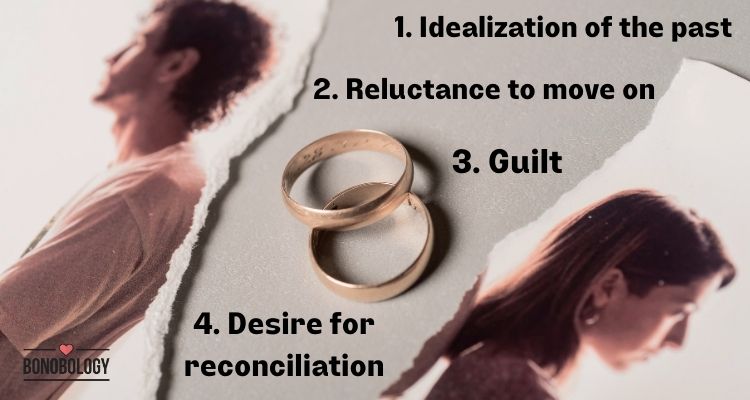

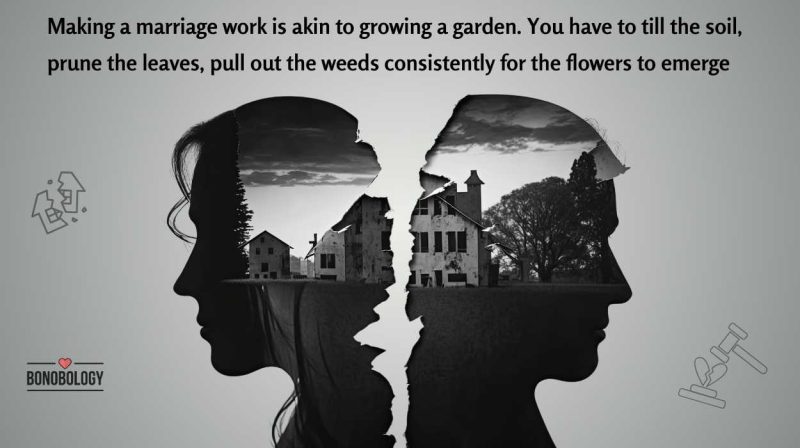

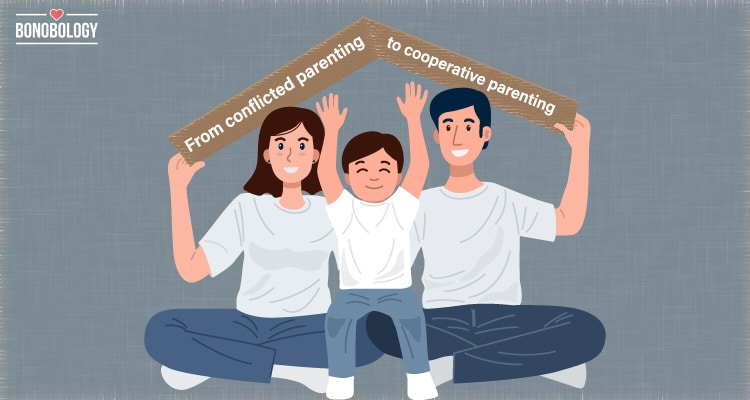

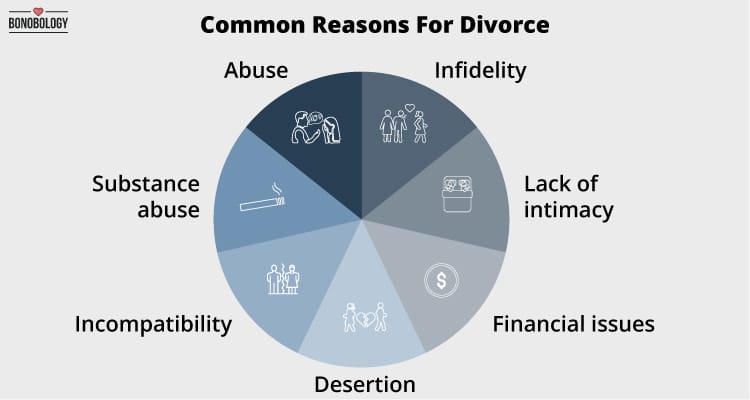




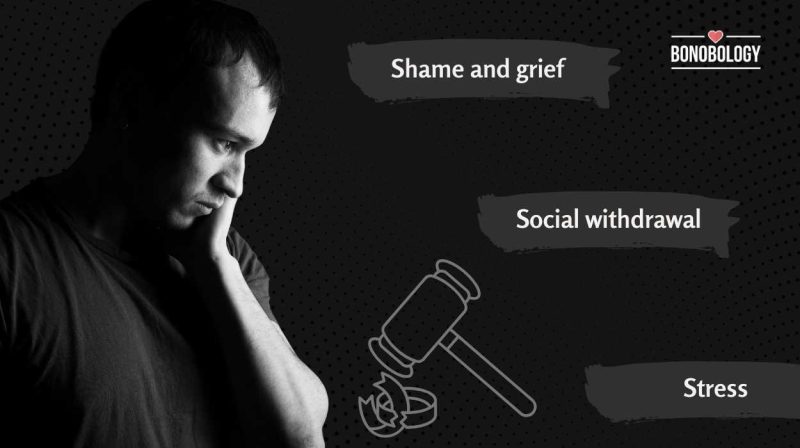






Featured
The Hidden Benefits Of Divorce
Top Legal Tactics for Alimony Disputes Between Parents
Divorce Regret: What Is It, Signs, And Ways To Deal
The Pros And Cons Of Being Your Own Divorce Lawyer
15 Subtle Yet Strong Signs Your Marriage Will End In Divorce
10 Things To Do When You Are Thinking About Divorce
10 Tips For Divorced Parents To Handle Joint Custody Effectively
9 Sneaky Divorce Tactics And Ways To Combat Them
15 Most Common Reasons For Divorce
How To Cope With Divorce As A Man? EXPERT ANSWERS
11 Ways To Remain Sane During a Divorce
7 Important Things To Know About Dating While Separated
The Top Rules Of Separation In Marriage To Make It Successful
Lonely After Divorce: Why Men Find It So Hard To Cope
How To Rebuild Life After Divorce: Handling Kids, Money, Dating, And Self-Love
Failed Celebrity Marriages: Why Are Celebrity Divorces So Common And Expensive?
Surviving Divorce at 50: How To Rebuild Your Life
Gray Divorce 101 – A Guide To Divorce After A Long Marriage
Expert Advice – When To Call It Quits In A Marriage
8 Examples Of Unhealthy Boundaries With Ex-Wife